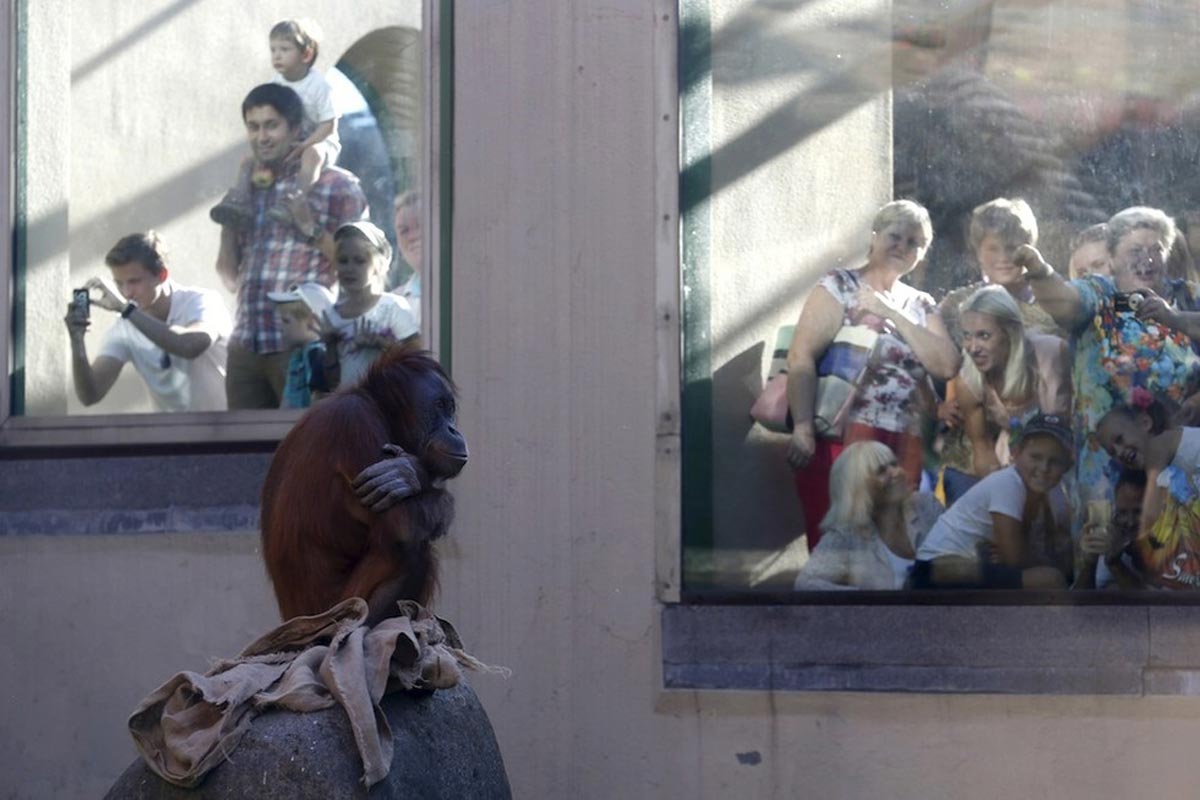“Zoo: an establishment for generating wealth at the expense of incarcerated inhabitants.” -Kevin Watkinson
When we were younger, zoos were magical places. We got to see elephants, tigers, zebras, polar bears, and pandas—animals we normally would only read about in children’s books or learn about on discovery channel.
But if we look at the concept of zoos a bit closer, we can see that zoos are, in fact, quite controversial issues in society. In reality, animals are shipped to and from different locations all over the world, and held in captivity for the rest of their lives for our viewing pleasure. Once we realize this, we can ask: is this practice and business morally justifiable?
We hold many animals in zoos that would normally have hundreds or thousands of miles of open space to comfortably live and freely roam in. For example, African elephants naturally live in herds, and travel as far as 30 miles each day, and remain active for up to 18 hours each day, So how can it be logical, or humane, to keep elephants captive with often only two others of their kind, in an enclosure that could never equal the open plains of the savanna?
Because zoos can’t perfectly mimic an animal’s natural habitat, they cannot have a natural life. As a result of this, artificial environments have been shown to cause abnormal behaviors in animals, such as self-mutilation, eating disorders, and stress behaviors such as pacing, neck twisting, or rocking back and forth.
“What do we learn from zoos? We learn that you can remove a creature from her habitat and still have a creature. We see a sea lion in a concrete pool and believe that we’re still seeing a sea lion. But we are not. We should never let zookeepers define for us what or who an animal is. A sea lion is her habitat. She is the school of fish she chases. She is the water. She is the cold wind blowing over the ocean. She is the waves that strike the rocks on which she sleeps, and she is the rocks. She is the constant calling back and forth between members of her family, this talking to each other that never seems to stop. She is the shark who eventually ends her life. She is all of these things. She is that web. She is her desires, which we can learn only by letting her show us, if she wants; not by caging her.” -Derrick Jensen
Many people justify the use of zoos by claiming that they help preserve endangered species. However, ninety-five percent of animals that are kept in zoos aren’t even endangered to begin with, ninety-seven percent of these animals aren’t part of the European Captive Breeding Programs, and only less than 1 percent of endangered animals have been introduced back into the wild.
Furthermore, the Association of Zoos and Aquariums (the AZA) requires certain standards to be met in zoos, but these standards are often woefully inadequate, and due to human imperfection, can never encompass the complete ideal standards for each animal. In our elephant example, the AZA does not prohibit zoos from keeping elephants in cold climates, and it does not explicitly prohibit the use of bullhooks or chains.
Many of the perceived benefits of keeping animals in zoos are simply not morally or logically justified. Seeing animals in zoos is not the only way to educate people on animals, and it is not even arguable that animals are more comfortable in zoos than in their natural habitats.
The central philosophy of veganism is that humans should leave non-human animals alone; they’re not our property, or things to be owned, profited off of, or exploited for our pleasure. They are living beings that should have the right to live free and unmolested lives, just like each of us.
We don’t need to keep animals in zoos. There are other ways of keeping animals safe and away from the threat of endangerment. We simply do it for our own pleasure. Where’s the morality in that?
Read More: 5 Things We Need to Stop Telling Ourselves About Zoos
